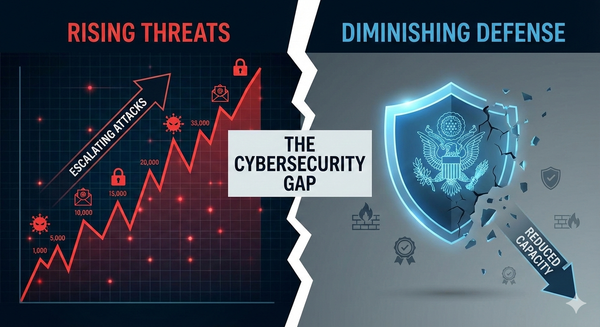Tech Stocks Crash & China's Rare Earth Weapon: Weekend Tech News October 11-12, 2025

This weekend has been a whirlwind for anyone following tech and global trade. I've been glued to the news between massive market losses and escalating tensions between the U.S. and China. Here's what happened and why it matters.
$770 Billion Vanishes in a Single Day
Friday was brutal for tech investors. I watched the biggest names in technology—Amazon, Nvidia, Tesla—each drop around 5%, collectively wiping out $770 billion in market value. To put that in perspective, that's more wealth destroyed in one day than the entire GDP of many countries.
The catalyst? President Trump's threat of a 100% tariff on China was announced after the market closed on Friday. He also declared that starting November 1, the U.S. would apply export controls on "any and all critical software."
The Nasdaq plunged 3.6% and the S&P 500 fell 2.7%—the worst day for both indexes since April. For tech megacaps, which now occupy an increasingly large slice of the U.S. market, this was a stark reminder of how political decisions can instantly reshape market fortunes.
Here's how the damage broke down:
- Amazon lost $121 billion in value, wiping out all its gains for 2025. The stock is now down 2% for the year.
- Tesla saw its market cap sink by $71 billion, just days after introducing lower-priced vehicles.
- Nvidia dropped nearly 5%, continuing a difficult stretch for the AI chip leader.
- Meta and Alphabet fell almost 4% and 2% respectively.
What strikes me most is the speed of it all. Tech stocks have been the market's darlings for so long that watching them hemorrhage value this quickly feels surreal.
China Plays Its Rare Earth Trump Card
While U.S. markets tanked on Friday, China made a calculated move that could have even bigger long-term implications. Beijing imposed sweeping new restrictions on rare earth mineral exports—and this time, they're not just limiting supply—they're extending control over how these materials are used globally.
Let me explain why this is such a big deal. China controls about 70% of the world's processed rare earths and over 90% of rare earth magnets. These materials are critical for semiconductors, electric vehicles, fighter jets, and the advanced chips powering the AI boom. Without them, manufacturing grinds to a halt.
The new restrictions, announced on October 9, represent China's first significant attempt to exercise "long-arm jurisdiction" over foreign companies in the semiconductor industry. Here's what changed:
Expanded Element Controls: China added five more rare earth elements—holmium, erbium, thulium, europium, and ytterbium—to its restricted list, along with related magnets and materials. These restrictions take effect on November 8.
Extraterritorial Reach: Starting December 1, any foreign company using rare earths of Chinese origin or products made with Chinese extraction/processing technology will need government licenses. This is massive—it means China is claiming control over rare earths even after they leave the country.
Semiconductor Targeting: Export license applications involving rare earths used in developing advanced computing chips (14 nanometers or below) or memory chips (256 layers or more) will be reviewed on a case-by-case basis. Military applications will be automatically rejected.
Supply Chain Disruption: According to sources familiar with the company, ASML Holding, the only manufacturer of machines that make the most advanced semiconductors, could face weeks-long delays in shipments.
The timing is fascinating. This move came ahead of a meeting between President Trump and Chinese President Xi Jinping at the APEC summit in South Korea later this month. It's a clear power play—Beijing demonstrates its leverage over global tech supply chains.
The Global Scramble Begins
The response has been swift and anxious. Germany, Europe's biggest economy, called China's curbs a "great concern" and said it's in close contact with affected companies and the European Commission. Taiwan, which relies mainly on Europe, the U.S., and Japan for rare earth supplies, said it needs more time to assess the full impact on its chip industry.
What worries me is how unprepared the West seems to be. The U.S. has only one rare earth magnet manufacturer—Noveon Magnetics. This week, they announced a partnership with Lynas Rare Earths to build a scalable domestic supply chain, but that's a long-term solution to an immediate problem.
China's strategy mirrors the U.S.'s with semiconductor export controls, but in reverse. Where Washington blocked chip exports to Beijing, China is now choking off the raw materials needed to make those chips in the first place.
The Bigger Picture
What I'm seeing unfold is fundamentally reshaping the global tech landscape. The days of seamless international supply chains may end, replaced by what analysts call "structural bifurcation"—China localizing its value chain. At the same time, the U.S. and allies accelerate their own separate systems.
This has profound implications:
For Tech Companies, the trade war is causing them to be caught in the crossfire, with their stock values subject to sudden, massive swings based on political announcements. The uncertainty makes long-term planning nearly impossible.
For Supply Chains: Companies must diversify away from rare Chinese earths, which will take years and billions of dollars in investment. In the meantime, they're vulnerable to disruptions.
For Consumers, higher costs are inevitable. The price of your next smartphone, electric vehicle, or laptop will reflect this geopolitical reality.
For AI Development: The chips powering the AI boom depend on these rare earth materials. Any slowdown in chip production could throttle AI advancement.
My Takeaways
- Market volatility is the new normal: Tech stocks can lose hundreds of billions based on a single social media post. If you're invested in tech, buckle up.
- Supply chain diversification is critical: Companies that diversified their rare earth sources years ago are in a much better position now. Those that didn't are scrambling.
- The U.S.-China tech war is accelerating: What started with tariffs has evolved into a full-spectrum competition over technology dominance. Neither side is backing down.
- Economic weapons have replaced military ones: China's rare earth restrictions and U.S. software export controls show how economic interdependence has become a tool of statecraft.
- Innovation may be the real casualty: When companies are focused on navigating geopolitical chaos rather than innovation, everyone loses.
I'll watch closely to see what comes out of the Trump-Xi meeting later this month—if it even happens. Trump threatened on Friday to cancel after China's latest moves. Either way, I suspect this weekend's events will be remembered as a turning point in how technology, trade, and geopolitics intersect.
Reference Sources:
Market Crash & Tech Stock Losses:
- CNBC - "Tech megacaps lose $770 billion in value as Nasdaq suffers steepest drop since April" (October 10, 2025)
- CNBC Technology News - Market data on Amazon, Nvidia, Tesla, Meta, and Alphabet stock performance (October 11, 2025)
China Rare Earth Restrictions:
- Bloomberg - "The World's Chip Supply Chain Is Bracing for Fallout From China's Rare-Earth Curbs" (October 10, 2025)
- Tom's Hardware - "China's new rare-earth curbs target chipmaking industry in retaliation to US restrictions" (October 10, 2025)
- CNN Business - "Xi reignites tensions ahead of Trump meeting with dramatic curbs on critical rare-earths" (October 9, 2025)
- CNBC - "China 'not afraid of trade war,' accuses U.S. of 'double standard' for rare earths retaliation" (October 12, 2025)
- CSIS - "China's New Rare Earth and Magnet Restrictions Threaten U.S. Defense Supply Chains" (October 9, 2025)
- Mining.com - "The world's chip supply chain is bracing for fallout from China's rare earth curbs" (October 10, 2025)



